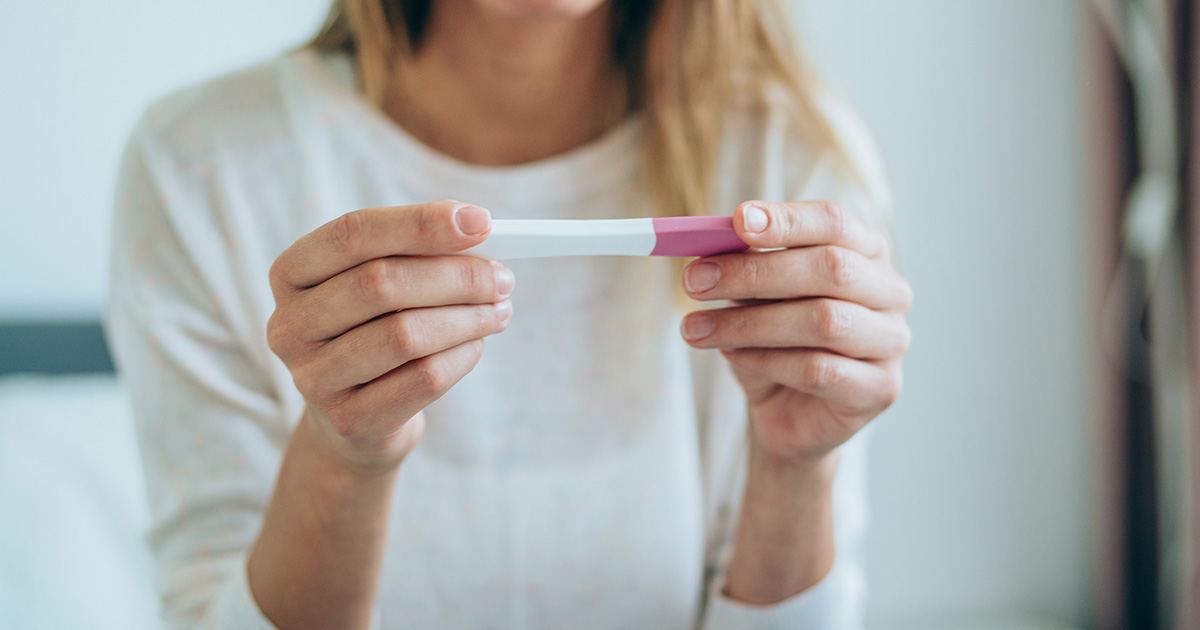
Pregnancy, What's Up, Down There
Bleeding During Pregnancy: What’s Normal vs. What’s Not
Bleeding during pregnancy can be concerning, but it’s actually more common than you may think. While it can seem like a red flag, it doesn’t always mean trouble. The key is to understand the difference between spotting and bleeding, be mindful of when it’s happening, and know when to talk to your Axia Women’s Health provider.
What is Spotting vs. Bleeding?
Okay, first let’s break down the difference between spotting and bleeding. Imagine just a few drops of blood, nothing to fill a pantyliner – that’s spotting. It can be pink, red, or even brown. Bleeding is a heavier flow that increases or persists and would be enough to need a pad. Bleeding is typically a darker red color. If you’re experiencing any spotting or bleeding during pregnancy, it’s always best to err on the side of caution and contact your provider.
Common Causes of Spotting or Bleeding
According to the American College of Obstetrics and Gynecologists (ACOG), spotting happens in 15-25% of pregnancies, especially in the first trimester. Below are some of the most common reasons for spotting during early pregnancy that generally aren’t cause for concern.
- Implantation bleeding: One of the most common causes of spotting in early pregnancy is what’s known as implantation bleeding. This can occur when you might expect your period, around one or two weeks after fertilization, when the egg implants in the lining of the uterus.
- Cervical changes: It’s also possible to experience spotting due to cervical changes. During pregnancy you have more blood vessels developing in the cervix, and therefore you may be more likely to bleed – especially after sex or intense physical activity.
- Infections: Vaginal infections or sexually transmitted infections (STIs) can sometimes cause spotting or light bleeding during pregnancy. These infections can be easily treated with help from your provider, and usually don’t pose a threat to your pregnancy.
More Serious Causes of Bleeding
Early Pregnancy
If spotting turns into heavier and more consistent bleeding during early pregnancy, it could be a sign of a pregnancy complication such as a miscarriage.
Most miscarriages happen before the 12th week of pregnancy. A miscarriage is often associated with heavier bleeding accompanied by cramps, back pain, or a sudden loss of pregnancy symptoms. If you suffer a miscarriage, it’s important to remember that it’s not your fault and that you’re not alone. There also are many organizations that offer help after a pregnancy loss, including Share Pregnancy & Infant Loss Support. It also may be helpful to talk to a licensed mental health professional who can help you cope with the grief.
Though rare, bleeding during early pregnancy could also be due to an ectopic pregnancy, where the fertilized egg grows outside the uterus, such as in the fallopian tube. A pregnancy cannot grow safely in this way and an ectopic can be life-threatening. If you experience any pain with bleeding, let your provider know right away as it could be an ectopic pregnancy and must be treated promptly.
Later Pregnancy
If you experience any bleeding in your second or third trimester, it’s important to contact your provider right away as it could be a sign of complications such as placenta previa, placental abruption, or preterm labor.
When To Contact Your Provider
While it may not be anything serious, it’s still best to call your Axia Women’s Health provider if you notice any bleeding during pregnancy, so they can provide a proper evaluation.
Take note of all of your symptoms including the amount of blood, the duration of your bleeding, along with the color or consistency, or any other symptoms such as cramping. This will help your provider best assess the situation and make sure they can provide the best medical support.
By maintaining a strong relationship with your Axia Women’s Health provider you will have the support you need – no matter what comes up during pregnancy.
Similar Articles

February 16, 2026
Understanding Your Pregnancy Odds: A Guide to Fertility in Your 20s, 30s, and 40s
Pregnancy
Read More
February 5, 2026

November 10, 2025


















































